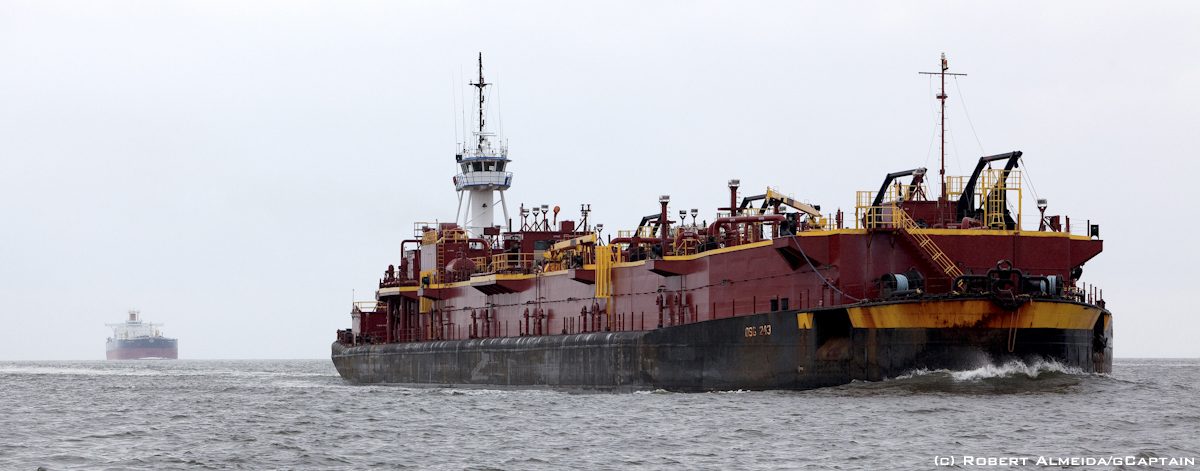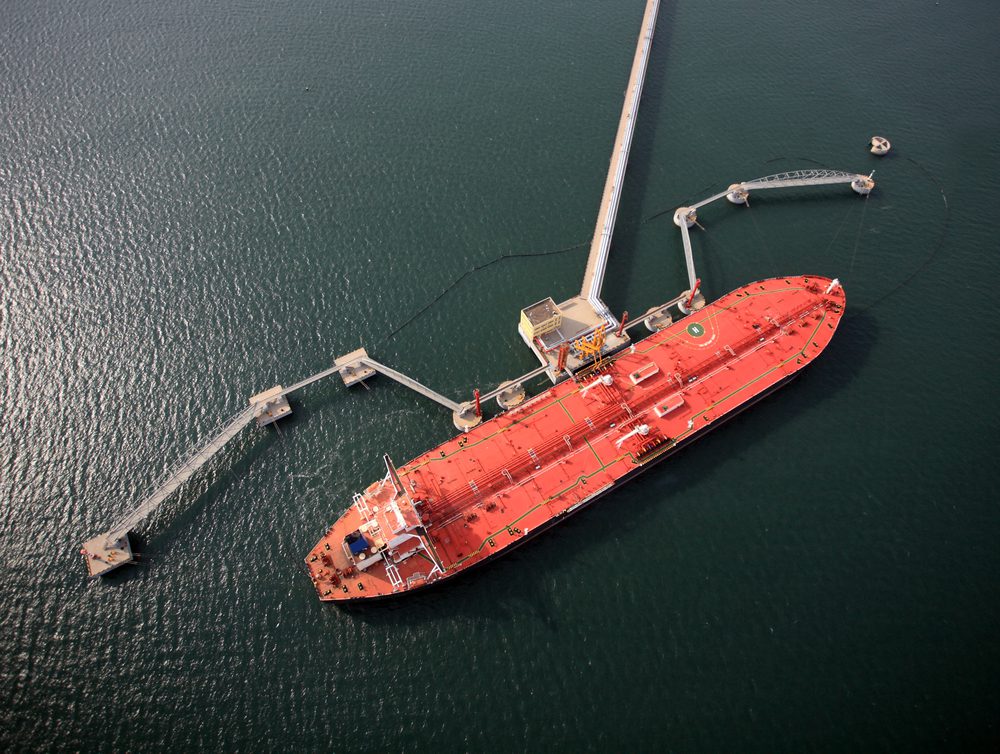The OSG 243 ATB is pushed north up the Delaware Bay
In early January, Alaska Senator Lisa Murkowski announced her support to help end the prohibition of crude exports from the United States.
“We need to act before the crude oil export ban causes problems in the U.S. oil production, which will raise prices and therefore hurt American jobs,” she noted while speaking at the Brookings Institution in Washington.
With U.S. oil production skyrocketing however, her argument seems largely without merit. The only ones who would likely benefit, at least in the United States, would be the companies who actually produce the crude.
For independent refiners like Valero and Tesoro which together have a total of 18 refineries in the United States, adding U.S. crude to the global marketplace will result in higher prices they will have to pay for their crude oil feedstock. This would directly result in higher prices at the gas pump.
Exporting crude could also have a negative affect on the U.S. merchant marine industry, a sector which she and her other Alaskan colleagues on Capitol Hill have shown a great deal of support for.
By allowing crude oil exports from the United States, less Jones Act ships may be needed to ship crude oil to the refineries, and instead, internationally-flagged ships will take this crude elsewhere for refining, and could conceivably ship it right back to the U.S. as a refined product, all via foreign-flagged vessels.
Meanwhile, Murkowski’s office and the American Maritime Partnership released a report last week noting that Alaska ranked third in the nation for maritime jobs per capita. In the release Murkowski adds, “The U.S. maritime industry, supported by the Jones Act, provides vital services necessary for Alaska’s economy and quality of life, and I appreciate the work of the American Maritime Partnership, the Transportation Institute and the many companies operating in the state who are making our maritime workforce strong today and for the future.”
Her public support for the Jones Act and her recent call for U.S. crude exports do not appear even remotely compatible.
It’s important to note that this argument is not the same as one opposing the export of U.S. natural gas. The United States has far more available natural gas than it can possibly use at the moment, and there are countries such as Japan for example, where the demand for this energy source is very high. There is such a limited market for natural gas in the United States that in many cases, it’s not economical to produce.
Editorial Standards · Corrections · About gCaptain

 Join The Club
Join The Club











